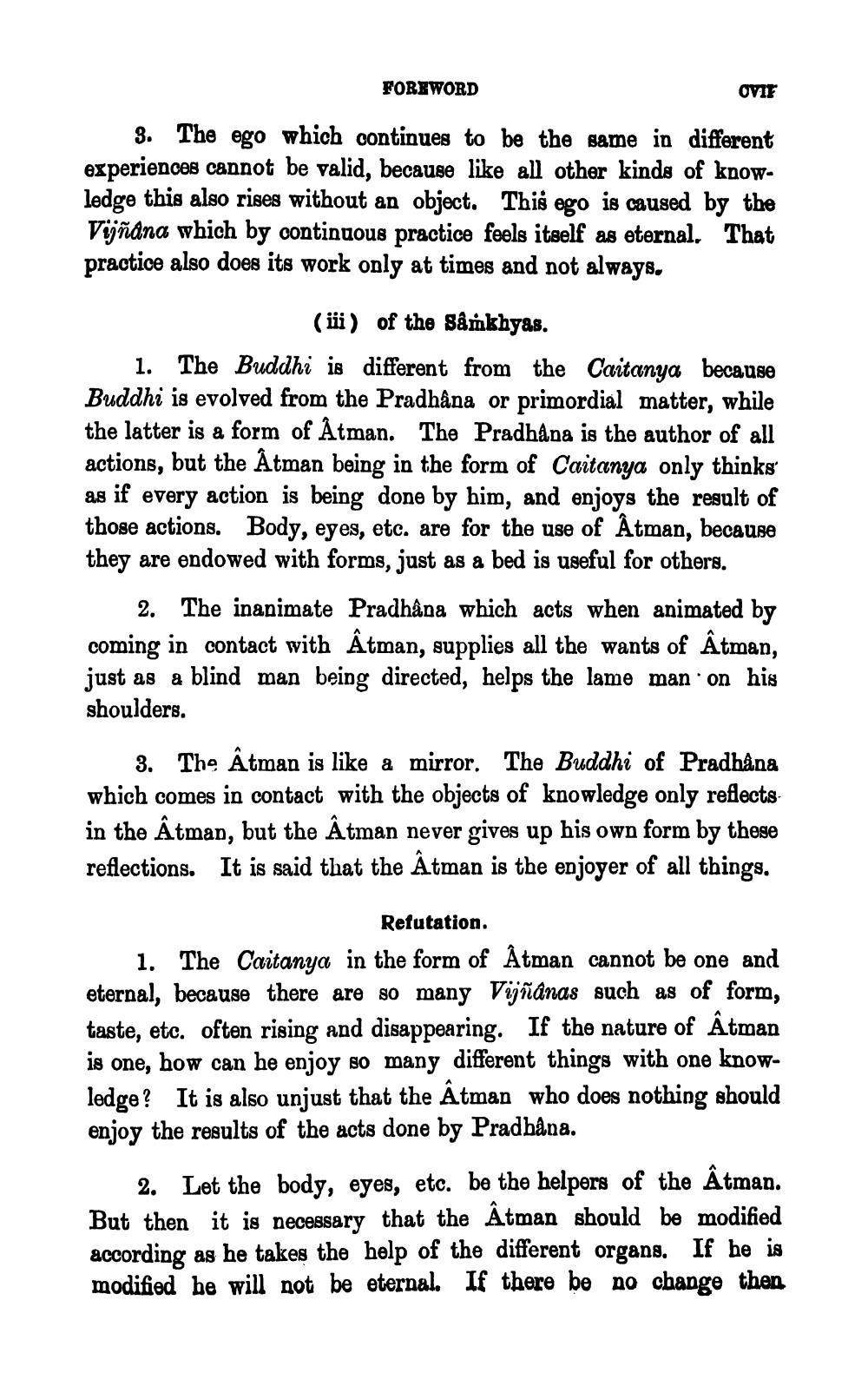________________
FOREWORD
OVIE
3. The ego which continues to be the same in different experiences cannot be valid, because like all other kinds of knowledge this also rises without an object. This ego is caused by the Vijñana which by continuous practice feels itself as eternal. That practice also does its work only at times and not always,
(üi) of the sâmkhyas. 1. The Buddhi is different from the Caitanya because Buddhi is evolved from the Pradhâna or primordial matter, while the latter is a form of Åtman. The Pradhana is the author of all actions, but the Atman being in the form of Caitanya only thinks as if every action is being done by him, and enjoys the result of those actions. Body, eyes, etc. are for the use of Âtman, because they are endowed with forms, just as a bed is useful for others.
2. The inanimate Pradhâna which acts when animated by coming in contact with Atman, supplies all the wants of Atman, just as a blind man being directed, helps the lame man on his shoulders.
3. The Atman is like a mirror. The Buddhi of Pradhana which comes in contact with the objects of knowledge only reflectsin the Atman, but the Atman never gives up his own form by these reflections. It is said that the Atman is the enjoyer of all things.
Refutation. 1. The Caitanya in the form of Âtman cannot be one and eternal, because there are so many Vijñānas such as of form, taste, etc. often rising and disappearing. If the nature of Atman is one, how can he enjoy so many different things with one knowledge? It is also unjust that the Atman who does nothing should enjoy the results of the acts done by Pradhana.
2. Let the body, eyes, etc. be the helpers of the Âtman. But then it is necessary that the Âtman should be modified according as he takes the help of the different organs. If he is modified he will not be eternal. If there be no change then




